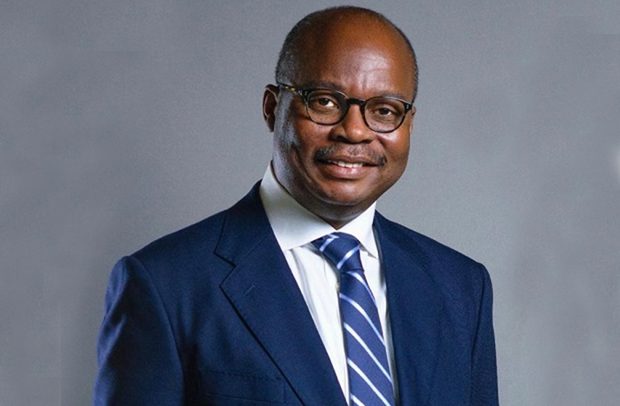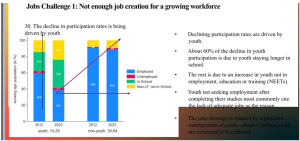
…Insights from CIB Ghana post-MPC Policy seminar
In a dynamic and often unpredictable economic landscape, monetary policy remains one of the most powerful tools for steering national growth, ensuring price stability, and safeguarding financial sector resilience. In Ghana, the Monetary Policy Committee (MPC) of the Bank of Ghana plays a pivotal role in shaping these outcomes through key decisions on inflation management, and liquidity control.
Recognising the critical impact of MPC decisions on businesses, households, and the banking sector, Chartered Institute of Bankers, Ghana (CIB Ghana) convened its maiden Policy Seminar under the theme ‘Monetary Policy in Action: How MPC Decisions Shape Ghana’s Economy and Financial Sector’.
The maiden Post MPC Roundtable Discussions brought together policymakers, industry leaders, market actors, and academics to bridge the gap between technical policy decisions and their real-world implications. Against the backdrop of global economic uncertainty, exchange rate volatility, and evolving domestic fiscal pressures, the seminar offered an important platform for dissecting how MPC interventions influence credit availability, business confidence, and investment flows while exploring strategies for the financial sector to adapt and thrive.
Following a period of economic turbulence marked by soaring inflation, currency depreciation, and fiscal strain, the tide has turned. Headline inflation has dropped to 12.1percent in July 2025, its lowest in over three years down from a staggering 54.1percent in 2022.
The Ghana cedi has appreciated by more than 40percent year-to-date, underpinned by a current account surplus of US$3.4 billion and foreign reserves of US$11.1 billion, providing 4.8 months of import cover. Fiscal discipline is holding, with a first-half deficit of 0.7percent of GDP, well within target.
Against this backdrop, the Bank of Ghana’s Monetary Policy Committee (MPC) has cut the policy rate by 300 basis points, signalling confidence in the disinflation process and marking a shift into an easing cycle. For businesses and households, this represents an opportunity for cheaper borrowing, renewed investment, and growth. But for policymakers, it raises the crucial question: will the benefits of monetary easing reach the real economy fast enough, and equitably enough, to make enough difference?
Survey insights and stakeholder voices
At the post-MPC policy seminar convened by Chartered Institute of Bankers, Ghana, we heard diverse voices- from the Association of Ghana Industries (AGI) and Ghana Union of Traders Association (GUTA) to leading bankers, academics and regulators, not the least, the Governor of Bank of Ghana, Dr Johnson Pandit Asiama. The panel discussant provided an on-the-ground view of how MPC decisions translate into practice.
The survey conducted by CIB Ghana prior to the 125th MPC meeting revealed banks and bankers’ optimism and confidence in macroeconomic environment, with 70percent of respondents expressing optimism about the economic outlook. Yet many noted increasing appetite to lend although rates remain high and non-performing loans rate remains high at 23.6percent (more than double the Sub-Saharan Africa average).
The AGI welcomed the policy rate cut but called for deeper reductions to unlock affordable credit for SMEs. GUTA echoed the need for access to foreign exchange, highlighting that cedi stability has yet to significantly lower retail prices due to structural cost pressures and FX market bottlenecks. He indicated the need for Bank of Ghana to track and monitor foreign currency movement within the banks to address the supposedly shortage in some banks.
Bridging the transmission gap
The MPC’s decision to ease rates is a vital first step, but the transmission mechanism-the process by which policy rate changes affect lending conditions, investment, and consumption- remains imperfect. Private sector credit growth slowed in the first half of 2025, down from 29.4percent in January 2025, as banks maintained cautious lending post-financial sector reforms and domestic debt exchange programme.
FX market inefficiencies, with some businesses resorting to parallel markets, and high operating costs in utilities, logistics and taxation, further limit the translation of macro stability into competitive production. Without targeted measures to address these structural bottlenecks, the easing cycle risks benefiting only low-risk corporates while leaving SMEs and growth-critical sectors behind.
CIB Ghana perspectives:
Turning the MPC’s policy shift into tangible gains will require a coordinated approach. The Bank of Ghana can accelerate the rollout of credit risk management guidelines, incentivise sector-targeted lending through differentiated Cash Reserve Ratios, and enhance transparency in forex allocations.
The stakes are high. Ghana has a rare stability window characterised by low inflation, strong reserves, and a disciplined fiscal position that offers a platform for inclusive growth. But windows of opportunity do not stay open indefinitely. The speed and decisiveness with which policymakers, financial institutions, and the private sector act will determine whether this moment becomes a turning point in Ghana’s economic transformation, or a missed opportunity remembered in hindsight.
The banking sector rests on a tripod- regulator (Bank of Ghana), Operator (Banks) and Educator (CIB Ghana). The three must align and work together to address some of fundamental issues regarding character, competence and conduct of bankers, especially in relation fraud, high NPLs, governance and risk management. The stability and sustainability of the financial sector and the wider macroeconomy require all-hands-on-deck approach.
The post Monetary policy in action – How MPC decisions shape the economy and financial sector appeared first on The Business & Financial Times.
Read Full Story













Facebook
Twitter
Pinterest
Instagram
Google+
YouTube
LinkedIn
RSS